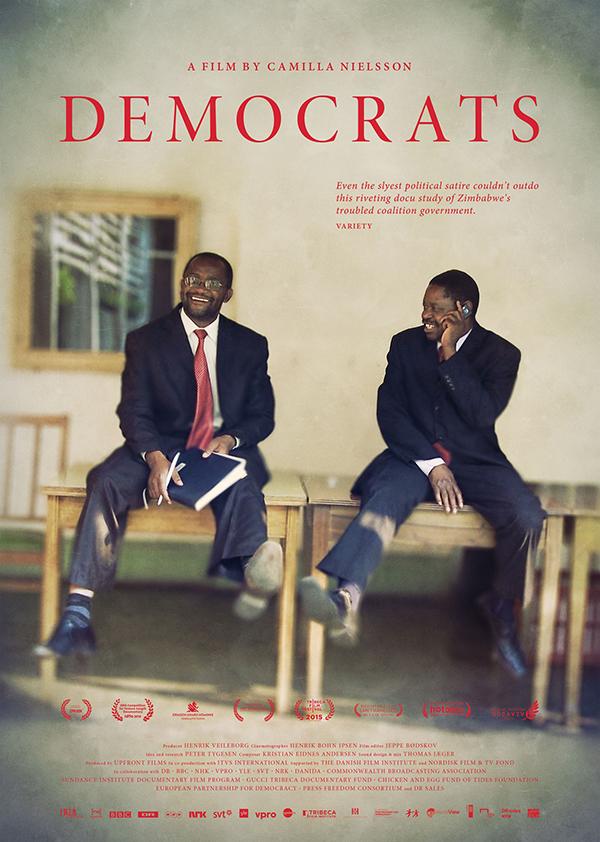Alumna wins best documentary at Tribeca with ‘Democrats’
NYU Tisch Alumna Camilla Niellson’s sixth film, “Democrats” centers on the three-year project of drafting a democratic constitution in Zimbabwe.
November 17, 2015
Tisch alumna and Copenhagen-based documentarian Camilla Nielsson’s sixth film, “Democrats” centers on the three-year project of drafting a democratic constitution in Zimbabwe. The story is told through the lens of two protagonists from the opposing political parties, Paul Mangwana of the Zimbabwe African National Union – Patriotic Front (ZANU-PF) party and Douglas Mwonzora of the Movement for Democratic Change (MDC). The film provides unique insight into the democratic process in a country with little means for political change against a dictator-like president, Robert Mugabe.
The film begins just before a series of town forums are held across the country in order to receive input for the drafting of the constitution. A basic background is given through a series of white-type-on-black frames; other than this, the film features no narration — the filmmaker only intervenes a handful of times with more text frames when context is absolutely necessary. However, even in the absence of narration the story unfolds well through the two main characters, Mangwana and Mwonzora.
The film includes romantic aspects that allows us to see the relationship between Mangwana and Mwonzora progress. The rivaling party members begin the film with disdain for one another. They progressively gain mutual respect and understanding, eventually forgetting their party lines and becoming great friends by the end of the film. Even when the MDC’s messages are suppressed by Mugabe’s employment of the secret police to uphold ZANU-PF’s positions at forum meetings, Mwonzora is understanding of Mangwana’s role in this implementation. He states that there is nothing much that Mangwana can do other than enact his parties messages for fear of his own life.
Eventually, Mangwana’s life is threatened when a clause limiting Mugabe’s presidency is leaked to the press, causing his party to become enraged. He becomes visibly fearful through his erratic behavior; Mwonzora works hard to come to a resolution for fear of the dissolution of the constitution-drafting process, which has already been years delayed. The control that Mugabe holds over the entire country is shocking and might be disturbing to viewers of the Western world. Mwonzora, at one point in the film, even comments on how he didn’t know that a black man could oppress his own people after years of white oppression.
The film itself is beautifully structured, with music being a strong point in its supporting the drama of the scene. By the end of the film, after President Mugabe has signed the constitution, audiences still question the future of this democracy, as the terms of the contract have still not been implemented and Mangwana’s life is still endangered. It is also clear that country’s natives do not exactly understand the effect of the document and its clauses; MDC supporters continue to shout “Tsvangarai is our president!” despite the document citing that he will have no chance of being president until Mugabe has passed away.
“Democrats” reminds audiences that some of the democratic ideals that we hold dear to our hearts are simply not to be taken for granted in these countries without histories of this form of government.
“Democrats” will run at Film Forum from Nov. 18 through Dec. 1.
Email Natalie Whalen at [email protected].




























































































































































